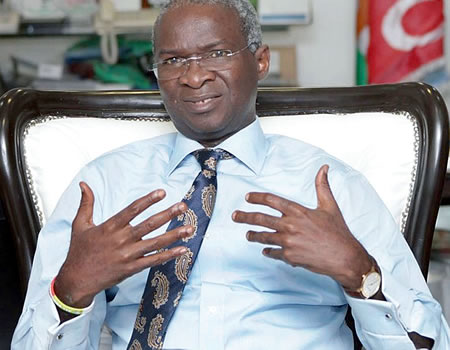Critical infrastructure plays a critical role in enhancing economic growth, creating jobs, improving living standards and reducing poverty. Important national goals and aspirations depend largely on how developed and sophisticated its infrastructure is. The inability of governments over the years to put critical infrastructure in place has widened the country’s infrastructure gap. Moody’s, a leading rating agency estimated Nigeria’s infrastructure gap at $3 trillion, which experts say is six times the size of its annual GDP.
Since 2015, the government of President Muhammadu Buhari has more than tripled the level of the Federal Government’s indebtedness to both local and foreign creditors. To be sure, state governments have also been active in the debt market ostensibly to seek funding for development.
In search of ways to fill the gap, the Federal Government has embarked on certain initiatives. There is the Presidential Initiative on Infrastructure, being executed by Nigeria Sovereign Investment Authority (NSIA). Similarly, there is the implementation of the Highway Development and Management Initiative, which is a public private partnership (PPP) programme to mobilise over a trillion naira in the first instance, private investment for the development and maintenance of 1,963km of 12 roads. It has also established the N15 trillion (N36.7 billion) Infrastructure Company of Nigeria with N1 trillion seed capital. The company will bridge the infrastructure deficit and implement innovative financial strategies to pull in private sector investment according to President Muhammadu Buhari.
As of the end of March 2021, Nigeria’s total public debts have grown to N33 trillion according to Debt Management Office (DMO). Of this, $3.121 billion (N1.284 trillion at N411.50) is owed to China for specific infrastructure projects.
According to DMO, “the $3.121 billion loans are project-tied loans. The projects, (11 in number as of March 31, 2020), include: Nigerian Railway Modernization Project (Idu-Kaduna section), Abuja Light Rail Project, Nigerian Four Airport Terminals Expansion Project (Abuja, Kano, Lagos and Port Harcourt), Nigerian Railway Modernization Project (Lagos-Ibadan section) and Rehabilitation and Upgrading of Abuja – Keffi- Makurdi Road Project.
“The impact of these loans is not only evident but visible. For instance, the Idu – Kaduna Rail Line has become a major source of transportation between Abuja and Kaduna. Also, the new International Airport in Abuja, has improved air transportation for the populace. Lagos – Ibadan rail line has also been completed. The projects also have the added benefits of job creation, not only by themselves but through direct and indirect service providers, a number of which are Small and Medium Enterprises.”
Critics, including ordinary Nigerians, economists and even officials of multilateral agencies like African Development, World Bank and International Monetary Fund have cautioned government officials against escalating public debts in view of the mismatch with income. For instance, in the first quarter of 2020, Federal Government spent over 90 per cent of its total revenue on debt service.
Over the years, however, competing demands and other considerations have ensured a huge gap in infrastructure need mainly due to overreliance on the government to provide infrastructure. Public treasury has not been able to adequately fund needed capital projects because of other demands like personnel and other recurrent costs. There is a limit at which citizens can be taxed or the government resorting to excessive borrowing. Modern and progressive infrastructure needed to provide jobs, good health, modern transportation facilities, electricity and such others are expensive but extremely important. Airport modernisation, construction of railway lines across the country have been long delayed because politicians are driven by short-term electoral politics. Arriving at the agreement to finance infrastructure through public finance also takes a long time because of the usual bureaucratic bottlenecks. And then there is the usual opaqueness and inefficiency associated with publicly financed.
Twice in the last three weeks, Senate President, Ahmad Lawan has reiterated the reason the government resorts to borrowing to fund infrastructure. He said Nigerians shouldn’t be taxed further to fund infrastructure and with the need to build infrastructure, the option is for government to borrow “responsibly” to fund it. While admitting that critics are already complaining about debt overhang because in reality, our debt to GDP is ratio is becoming unrealistic, he said “our options are really very limited as a country. First, we don’t have the necessary revenues, Nigeria is poor, we shouldn’t deceive ourselves. Nigeria is not rich, given the circumstances we live in, given the challenges we have; our resources are so low, our revenues are so low and therefore, the option of not doing anything, just to sit because we have no money, we shouldn’t go for infrastructure development, is not even an option worthy of consideration. You cannot keep the economy stagnant.
“Two, you cannot, in my view and judgement, tax Nigerians further for you to raise the money for infrastructure development. Other countries do that, but we have serious situation across the country, so you cannot put taxes on people. The other option is public private partnership. You need to create the environment to attract investors to come into our country because of the security challenges we face today. Not many investors would like to come to Nigeria. In fact, even those inside Nigeria may not like to invest properly in this sector of infrastructure development.
“So, the only option left is for us to borrow, borrow responsibly, utilise prudently and economically, and ensure that the projects are self-sustaining that they can pay back the loans that Nigerian economy will benefit from the implementation of such infrastructure development. So, that is the only option we have and I believe that Nigerians will understand. Of course, it’s not desirable, it’s not something that we like too, no Nigerian would like to have. In fact, even an individual does not like to be on loan, but when you must, then you have to, and I want to be very practical here that we do so with that feeling of ‘this is our country, we must move forward, we must provide the enabling environment for our economy to grow and Nigeria to develop.”
In essence, infrastructure investment continues to be very much a public sector business.
As a result of this, there have been increasing suggestions for the government to encourage more private participation in infrastructure development in recent years.
Some of the benefits of advantages of allowing participation of the private sector in infrastructure financing include that there is less likely to be cost and time overrun. Investors unsure of adequate due diligence while there is adequate expertise that combines to reduce construction cost and time overruns.
Private sector financing of public infrastructure frees the government’s balance sheet of debt while equally ensuring lower whole-life costs. Bundling of projects provides incentives to invest more in the early stages in order to minimise later operational costs and reduce the total cost of infrastructure over the lifecycle.
However, while allowing for more private sector participation in the provision of infrastructure, citizens are likely to pay more for such services. While governments are allowed for instance to toll some roads, such collections are not commercially calculated. Government hospitals are also heavily subsidised and so, are less expensive than their privately run counterparts. Just like schools and colleges. Government can borrow more cheaply than the private sector because gilts are lower risk. Without the typical corruption of politicians and civil servants, there will also be lower procurement costs since fewer private parties are involved compared to privately financed projects. Government is also able to maintain greater flexibility over future maintenance costs by retaining control of the asset.
For privately built infrastructure, however, financing costs are likely to be higher as project-specific companies normally have higher borrowing costs compared to gilt borrowing. And because private finance contracts also require detailed and costly specifications, they deliver infrastructure at higher costs than the government.
YOU SHOULD NOT MISS THESE HEADLINES FROM NIGERIAN TRIBUNE
We Have Not Had Water Supply In Months ― Abeokuta Residents
In spite of the huge investment in the water sector by the government and international organisations, water scarcity has grown to become a perennial nightmare for residents of Abeokuta, the Ogun State capital. This report x-rays the lives and experiences of residents in getting clean, potable and affordable water amidst the surge of COVID-19 cases in the state…
Selfies, video calls and Chinese documentaries: The things you’ll meet onboard Lagos-Ibadan train
The Lagos-Ibadan railway was inaugurated recently for a full paid operation by the Nigerian Railway Corporation after about a year of free test-run. Our reporter joined the train to and fro Lagos from Ibadan and tells his experience in this report…






